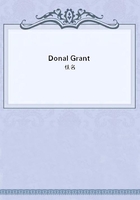
第20章
"Ow ay, an' welcome! We setna up for the men o' Gotham."
"Weel, I wad spier a question gien I may."
"Speir awa'. Answer I winna insure," said the man unshaven.
"Weel, wad ye please tell me what ye ca' the justice o' God?"
"Onybody could tell ye that: it consists i' the punishment o' sin.
He gies ilka sinner what his sin deserves."
"That seems to me an unco ae-sidit definition o' justice."
"Weel, what wad ye mak o' 't?"
"I wad say justice means fair play; an' the justice o' God lies i' this, 'at he gies ilka man, beast, an' deevil, fair play."
"I'm doobtfu' aboot that!" said a drover-looking fellow. "We maun gang by the word; an' the word says he veesits the ineequities o' the fathers upo' the children to the third an' fourth generation: I never could see the fair play o' that!"
"Dinna ye meddle wi' things, John, 'at ye dinna un'erstan'; ye may wauk i' the wrang box!" said the old man.
"I want to un'erstan'," returned John. "I'm no sayin' he disna du richt; I'm only sayin' I canna see the fair play o' 't."
"It may weel be richt an' you no see 't!"
"Ay' weel that! But what for sud I no say I dinna see 't? Isna the blin' man to say he's blin'?"
This was unanswerable, and Donal again spoke.
"It seems to me," he said, "we need first to un'erstan' what's conteened i' the veesitin' o' the sins o' the fathers upo' the children, afore we daur ony jeedgment concernin' 't."
"Ay, that 's sense eneuch!" confessed a responsive murmur.
"I haena seen muckle o' this warl' yet, compared wi' you, sirs,"
Donal went on, "but I hae been a heap my lane wi' nowt an' sheep, whan a heap o' things gaed throuw my heid; an' I hae seen something as weel, though no that muckle. I hae seen a man, a' his life 'afore a douce honest man, come til a heap o' siller, an' gang to the dogs!"
A second murmur seemed to indicate corroboration.
"He gaed a' to the dogs, as I say," continued Donal; "an' the bairns he left 'ahint him whan he dee'd o' drink, cam upo' the perris, or wad hae hungert but for some 'at kenned him whan he was yet in honour an' poverty. Noo, wad ye no say this was a veesitin' o' the sins o' the father upo' the children?"
"Ay, doobtless!"
"Weel, whan I h'ard last aboot them, they were a' like eneuch to turn oot honest lads an' lasses."
"Ow, I daursay!"
"An' what micht ye think the probability gien they had come intil a lot o' siller whan their father dee'd?"
"Maybe they micht hae gane the same gait he gaed!"
"Was there injustice than, or was there favour i' that veesitation o' the sins o' their father upo' them?"
There was no answer. The toddy went down their throats and the smoke came out of their mouths, but no one dared acknowledge it might be a good thing to be born poor instead of rich. So entirely was the subject dropped that Donal feared he had failed to make himself understood. He did not know the general objection to talking of things on eternal principles. We set up for judges of right while our very selves are wrong! He saw that he had cast a wet blanket over the company, and judged it better to take his leave.
Borrowing a wheelbarrow, he trundled his chest home, and unpacking it in the archway, carried his books and clothes to his room.